Cameroon’s hammerheads: a conservation lifeline
Along the African miniature coastline, Cameroon, the rhythmic crashing of waves against the shore, and the vibrant energy of the bustling fishing markets. These are the ideas that first triggered my passion to become a marine biologist. From a young age, I was strongly attracted by the incredible diversity of life in the ocean, but also deeply concerned by the uncommon presence of marine lovers, and the threats facing these fragile ecosystems. One experience, where I witnessed a scalloped hammerhead shark entangled in a gillnet as bycatch in Limbe, sparked the marine research fire in me. This was the time I knew I had to dedicate my life to conservation. This project, aimed at reducing the bycatch of these key coastal/marine creatures in the coastal communities along the Cameroon coastline, is a culmination of that lifelong dream.
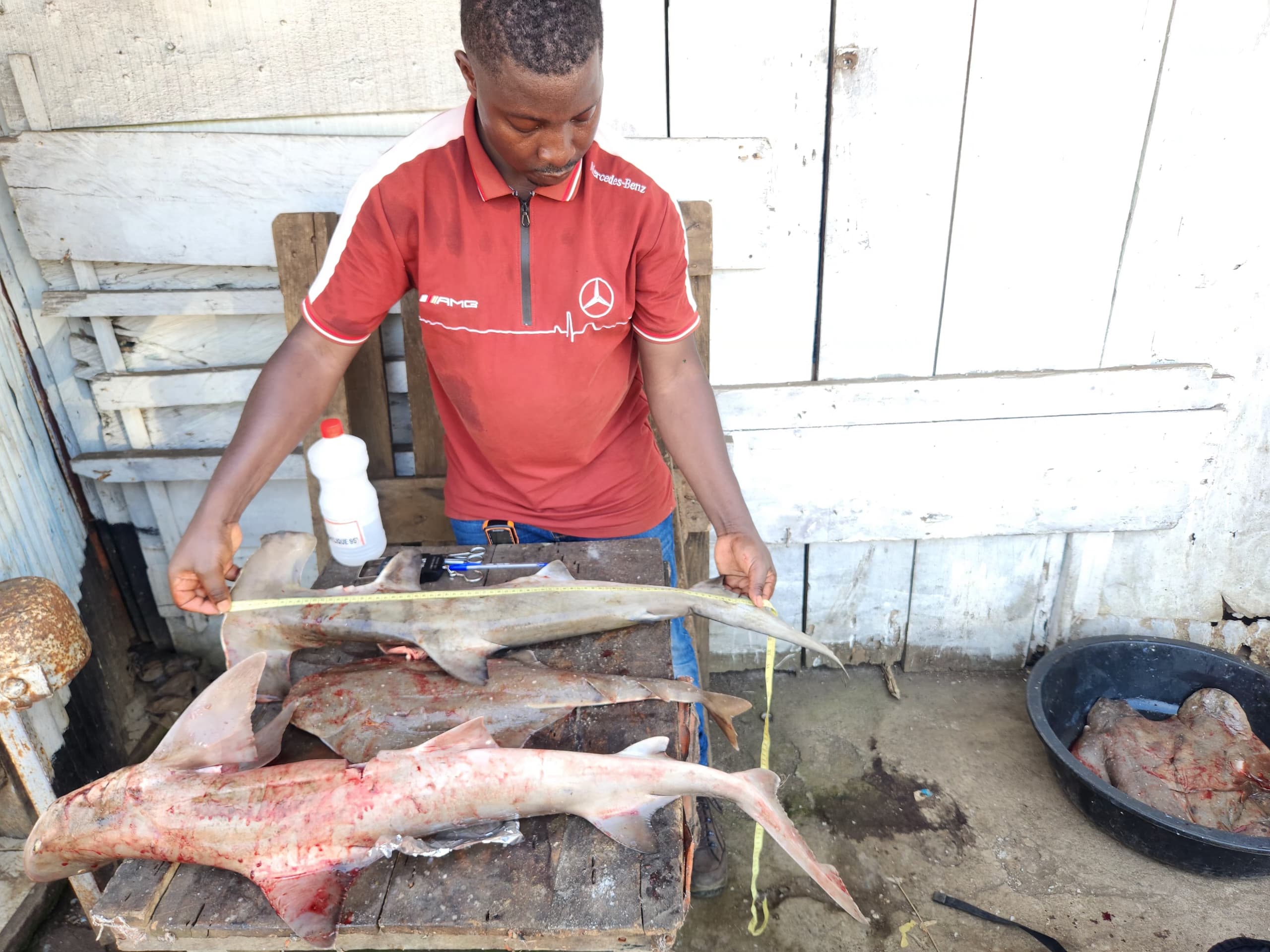
Documenting morphometric measurements of a scalloped hammerhead shark at Limbe, Dawn Beach fisheries market, in collaboration with coastal women’s groups sustaining local livelihoods through fish processing and trade. Image © Wongibe Dieudonne
In early January 2025, we kicked off a crucial initiative to protect scalloped hammerheads, which are tragically vulnerable to bycatch and pollution in this vital fishing region. Initially, we aimed to understand the complex dynamics between local fishing communities and these threatened sharks. To gain deeper insights, we set into motion a multi-pronged approach, starting with listening to the fishermen themselves.
In villages like Manoka and Idenau, we have begun comprehensive questionnaire surveys. This isn’t just about collecting data; it’s about understanding their stories, the challenges they face, and learning about the traditions that have shaped their relationship with the sea for generations. We are asking fishermen about their current fishing practices – what types of nets and lines do they use? How often do they encounter sharks, and what do they do when they do? What are their perceptions of current conservation efforts, what difficulties do they face during their fishing activities and what support do they need to embrace more sustainable practices? Seriously, there is a call for urgent action.
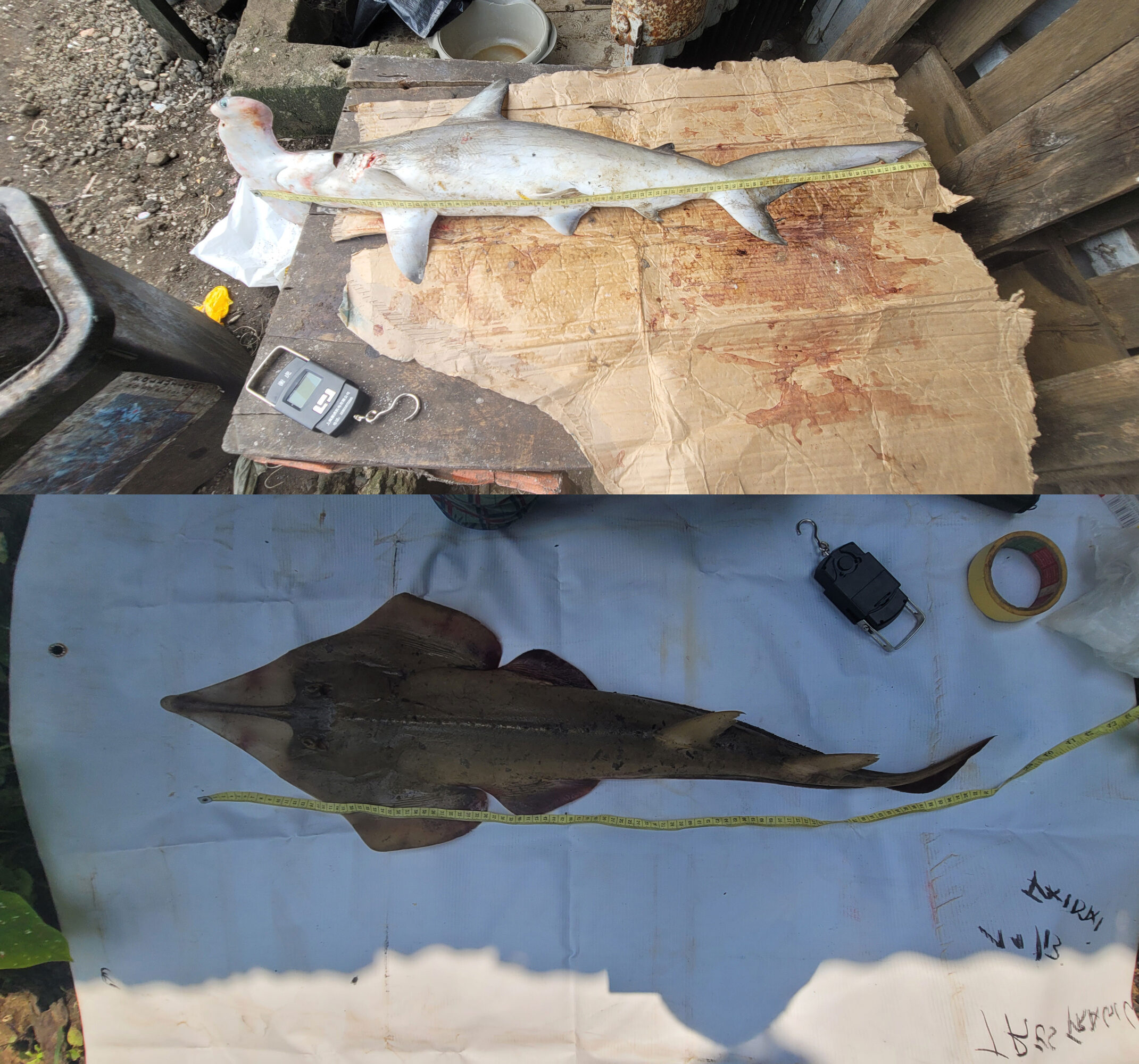
Field observations of threatened elasmobranchs: scalloped hammerhead shark (Limbe) and blackchin guitarfish (Kribi), highlighting regional conservation priorities. Image © Wongibe Dieudonne
Simultaneously, we are recording the market dynamics in places like the Down Beach market in Limbe, Youpwe in Douala and Boamanga in Kribi. This fisheries market survey assesses the population structure, and – indirectly – the market demand for shark and ray meat. Knowing the economic pressures that drive fishing practices is essential if we want to create viable alternatives – an estimate of how much sharks are being sold for at the market. Understanding these details will help us develop strategies to provide alternative livelihoods and reduce the economic incentive to catch these vulnerable sharks.
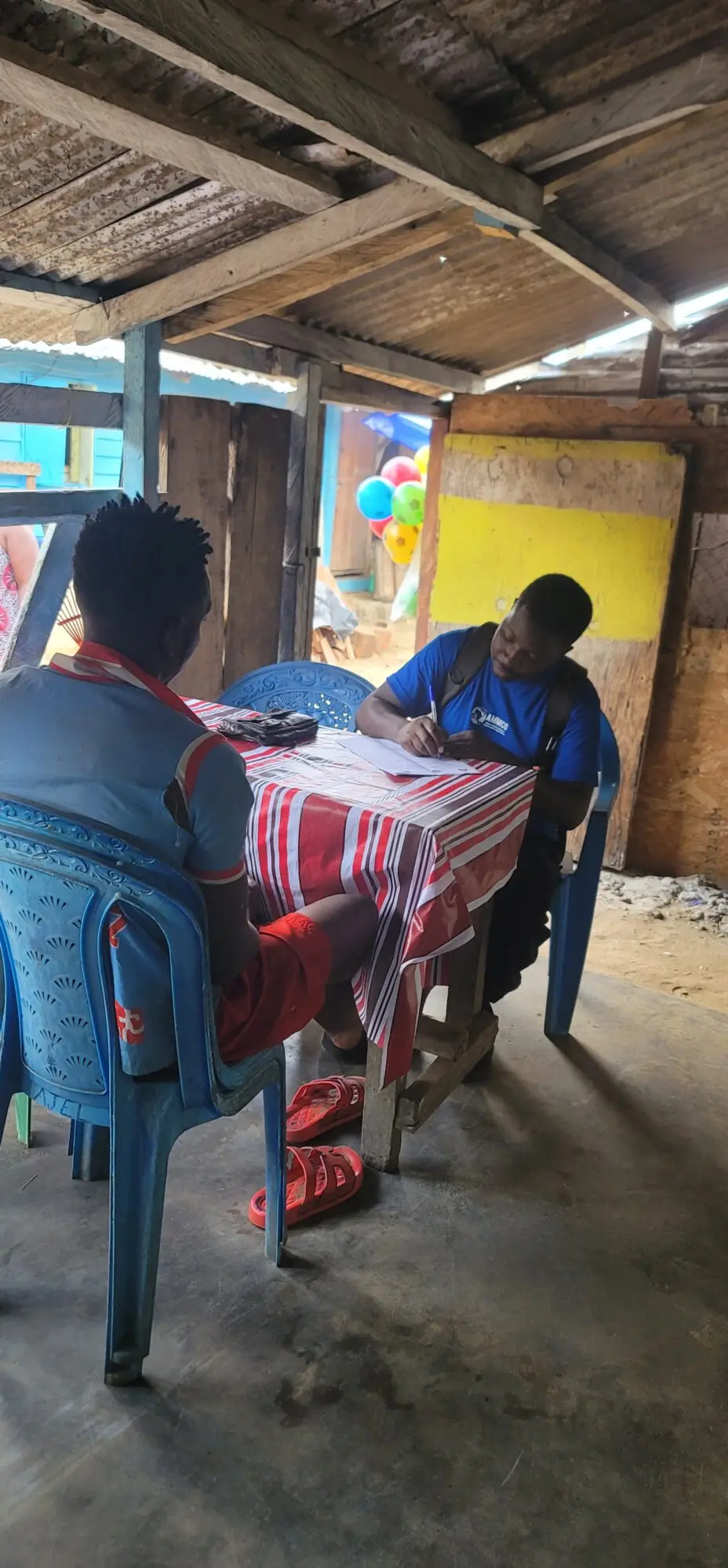
Interviewing Mr. Divahe Maxim (9-year veteran fisher) at Londji-Kribi landing site on shifting catch trends and market pressures for sharks and rays. Image © Wongibe Dieudonne
Beyond the surface, we are also unlocking the secrets of bycatch through tissue collection. We have started the delicate process of collecting tissue samples from scalloped hammerhead sharks in local fisheries.
To directly empower the communities, we have begun organising “Good Fishing Practices” workshops in villages throughout the region. These are not top-down lectures; they’re interactive sessions where we can share knowledge, demonstrate practical techniques for reducing bycatch (such as carefully cutting sharks free from nets), and – most importantly – listen to the fishermen’s experiences and ideas. We want to co-create solutions that are both effective and practical for their daily lives, offering hands-on demonstrations and fostering a collaborative environment for change.
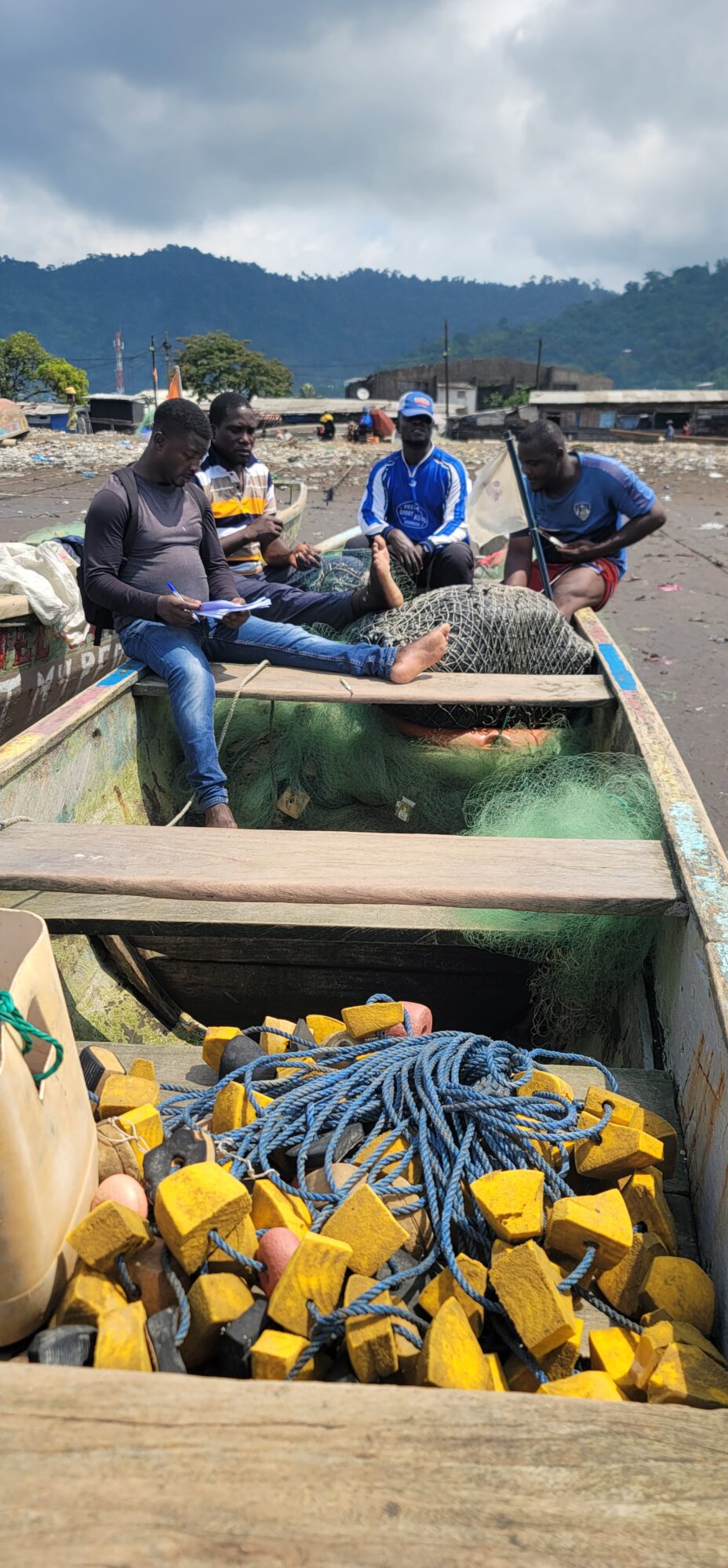
Recording gillnet fishing practices—mesh sizes, soak times, and effort—with a Limbe artisanal fisher during gear maintenance. Image © Wongibe Dieudonne
This is just the beginning of our journey, and we are incredibly excited to share our progress with you. Sharks play a vital role in maintaining the health of our oceans, and their conservation is essential for a sustainable future in Cameroon and beyond. Follow along as we share our discoveries, our challenges, and our successes, and learn how you can support our efforts to protect these magnificent creatures.
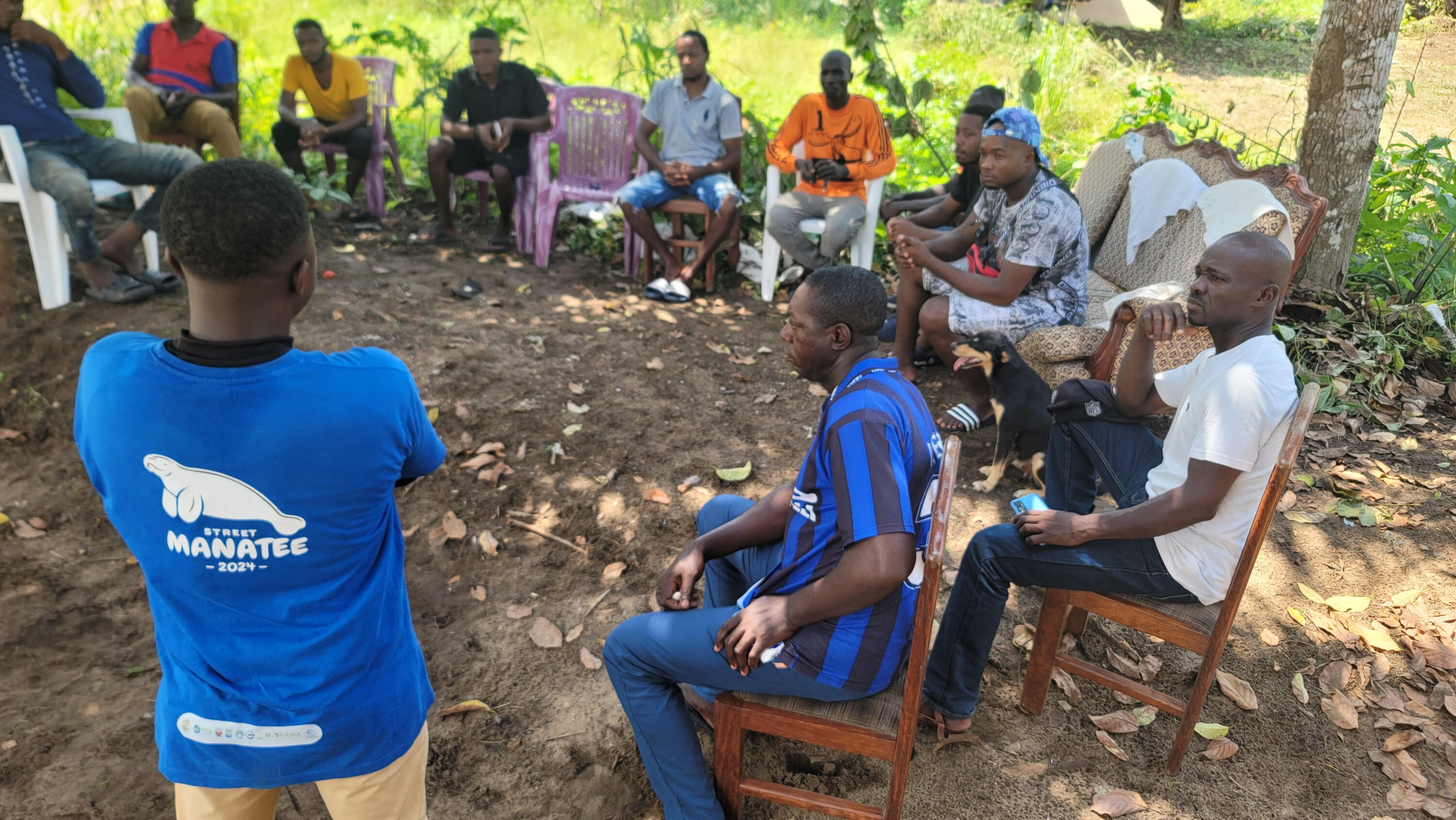
Co-hosting community workshop in Manoka-Douala on sustainable fishing and elasmobranch conservation, partnering with MINEPIA and Safe Our Sea Foundation. Image © Wongibe Dieudonne
